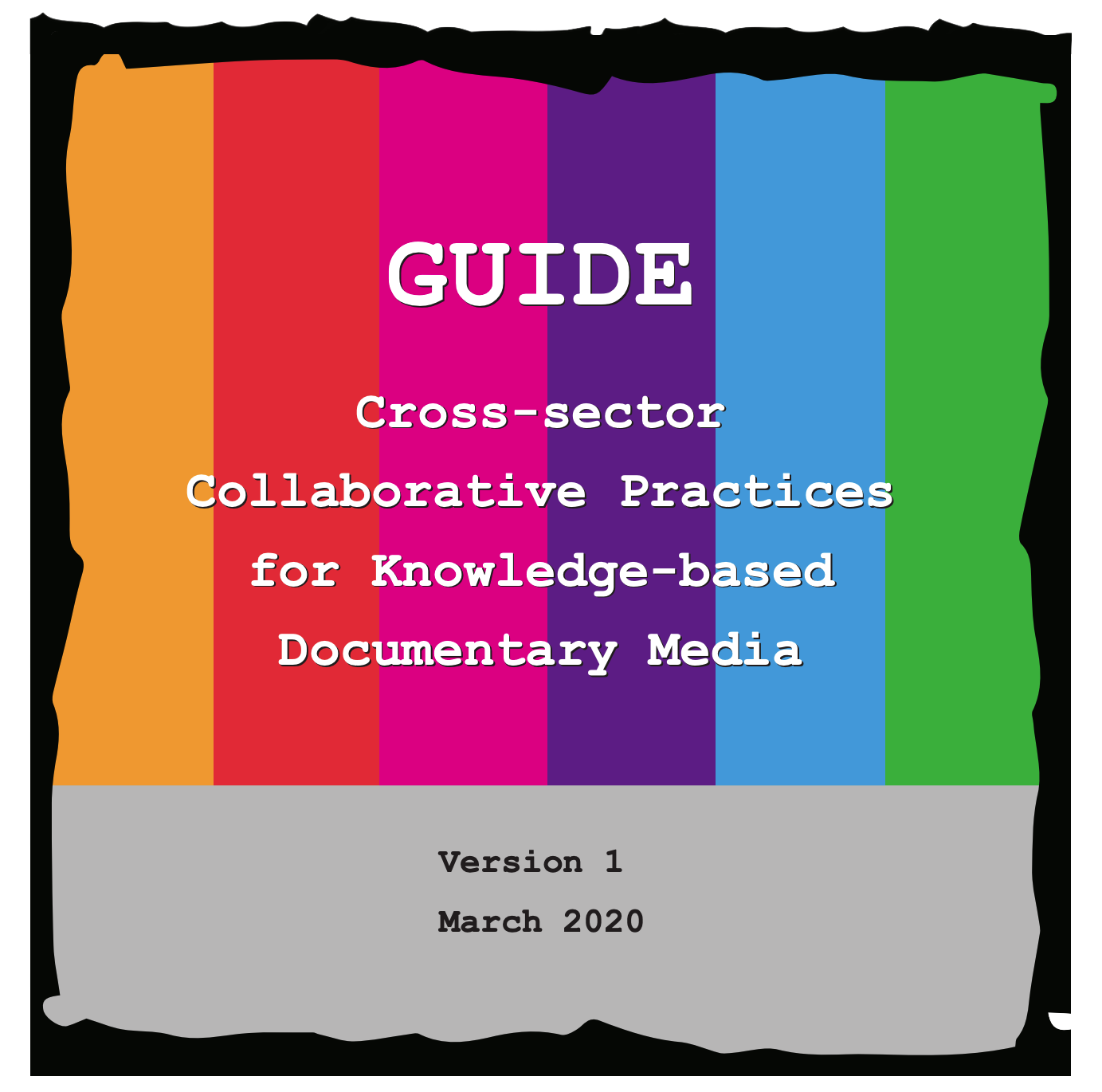DOCTalks researches and publishes guides to help facilitate the creation, funding, and mobilization of knowledge-based documentary media using a cross-sector collaborative approach with creators. The purpose of DOCTalks Guides are to provide a best practices and principles ecosystem that will lead to successful collaborations on knowledge-based documentary media projects.
Who’s Who In A DOCTalks Community Of Creators

Documentary Producers can offer a community of creators the following:
- experience in producing compelling & watchable documentary films.
- expertise in research, visual arts & storytelling.
- understand narrative structure, with an emphasis on visible evidence and an empathetic approach to characters that impact the documentary and the entire research process.
- bring an outsider’s perspective to the academic research and may ask a lot of questions.
- can identify and secure various sources of revenues to produce content that benefits all of the cross-sector creators collaborating on a documentary media project.
DOCTalks has identified the Documentary Organization of Canada as the primary association representing professional documentary producers in Canada. This does not exclude other documentary producers from participating in knowledge-based documentary media projects.

Academic Researchers can offer a community of creators the following:
- funding: within the past few years, SSHRC has encouraged researchers to use documentary film for knowledge-mobilization purposes.
- some academics can travel within their regions to collaborate on a project because their research is sponsored and they receive a salary from their university, they charge no additional professional fees.
- may hire students as research assistants if funded through grants.
- first-hand experience with the science behind the issues / research findings and must comply with ethical practices and standards.
- Academic rigour & peer review to ensure legitimacy of claims.
- universities provide access to materials, equipment, community meeting spaces. Some have media production in-house.
DOCTalks has identified the Canadian Association for University Teachers as the primary association representing professional academic researchers in Canada. This does not exclude other academic researchers from participating in knowledge-based documentary media projects.

Charities can bring the following benefits to a community of creators:
- engagement in understanding and addressing societal issues that are of value to the public.
- compelling stories to tell about how they’re making a difference in the communities they serve.
- existing collaborations with other cross-sectors (governments, academic researchers).
- their charitable tax status enables them to seek funding from a variety of sources to create documentary media (governments, foundations, donors).
DOCTalks refers to the Canada Revenue Agency definition of registered charities and non-profit organizations. They must use their resources for charitable activities and purposes beneficial to the community. Some examples are: relief of poverty (food banks, soup kitchens, low-cost housing units), advancement of education (colleges, universities, and research institutes), heritage programs (culture, sports, heritage).

Governments may bring the following to a community of creators:
- understanding and addressing societal issues that are required by the public and important to their government and policies (ministries, departments, agencies, programs).
- engagement with citizens and target audiences by producing knowledge-based documentary media content that can highlight a societal issue (i.e. social, cultural, economic, environmental) and/or activities that will address challenges (problems) and opportunities (benefits) associated with an issue.
- existing collaborations with communities of creators and provide funding to various cross-sectors (documentary producers, academic researchers, charities, broadcasters, foundations) that are collaborating to address societal issues using knowledge-based documentary media.
There are various levels of governments (federal, provincial, territorial, municipal, indigenous) and numerous types of government bodies (ministries, departments, agencies, programs) that provide a wide variety of funding to cross-sector creators collaborating on knowledge-based documentary media projects in Canada and internationally.

Broadcasters can offer the following to a community of creators:
- can ensure that Canadian broadcasting content meets the needs and interests of Canadians by delivering compelling, high-quality Canadian-made creative content from diverse sources on a variety of platforms.
- broadcast time and production facilities.
- broadcast licenses that can trigger more funding options.
- facilitate local content.
- provide support for the maintenance and development of Canadian talent by ensuring that Canadian artists can: create content for both Canadian and global audiences, gain financial support, and promote their creations.
DOCTalks refers to broadcasters that are licensed by the Canadian Radio-Television and Telecommunications Commission to operate in Canada under the Canadian Broadcast Act. These do not exclude international broadcasters and other media content distribution platforms

DOCTalks has divided Foundations & Funders into three sub-sections related to public & private foundations, academic researchers and documentary producers.
Public & Private Foundations sector funding can offer a community of creators:
- wide variety of mandates that enable them to engage, understand and impact societal issues that are of interest to them.
- existing collaborations with communities of creators and provide funding to various cross-sectors (academic researchers, charities).
- they need to effectively communicate their social impact activities to the public and various target audiences.
- diverse group of registered charities funders that annually contribute funding to qualified donees across the country.
DOCTalks has identified four member-based organizations in Canada that represent public and private foundations: Community Foundations of Canada, Philanthropic Foundations of Canada, The Circle on Philanthropy and Aboriginal Peoples in Canada, Environment Funders Canada. This does not exclude foundations that may not be members of these organizations.
Academic Funders are able to offer the following to a community of creators:
- fosters and maintains an environment that supports and pro-motes the responsible conduct of research.
- ensures the effective management of conflict of interest of any participant in the review process.
- informs the public about Agency grants and scholarships awarded, programs of research support and research training, and the impact of research conducted at their Institutions or facilities funded by research agencies.
DOCTalks has identified three academic research funding agencies overseen by Innovation Science & Economic Development Canada: Social Sciences and Humanities Research Council ( SSHRC), Natural Sciences and Engineering Research Council ( NSERC), Canadian Institutes of Health Research ( CIHR). This does not exclude other academic research funding agencies or programs in Canada or internationally.
Documentary Funders can offer the following to a community of creators:
- ensuring Canadian artistic expressions and cultural content are created and accessible at home and abroad.
- ensure that Canadians and the audiovisual industry achieve maximum social, cultural and economic benefits.
- developing and retaining talented creators foster the quality and diversity of Canadian films and digital media content and build larger audiences at home and abroad for it.
- developing and retaining talented creators, foster the quality and diversity of Canadian films and digital media content, and to reach larger audiences at home and abroad.
Independent documentary producers can access funding from the following sources i) licence fees from broadcasters (such as CBC, Radio-Canada, TV Ontario, Knowledge Network, Aboriginal Peoples Television Network) and web-based platforms (such as Telus Storyhive, Bell Fibe TV1); ii) equity and grant funding from federal, provincial and territorial agencies (such as Canada Media Fund, Telefilm Canada, National Film Board of Canada); iii) equity from private sector funders (such as Rogers Documentary Fund, Bell Fund); iv) financing from Canadian and international distributors; and v) federal, provincial & territorial production tax credits (such as CAVCO). This does not exclude other documentary funding agencies or programs in Canada or internationally.

As of June 2022, the DOCTalks Best Practices & Principles logo can be used in tail credit acknowledgements for documentary media projects that create, fund and mobilize knowledge using a cross-sector best practices and principles approach. For example, projects such as: documentary films & videos, podcasts, immersive learning technologies (i.e. virtual & augmented reality, apps, games, animation, photo essays), interactive websites and social media.
To learn more about the DOCTalks Best Practices & Principles approach and logo, please contact us at: info@doctalks.ca



